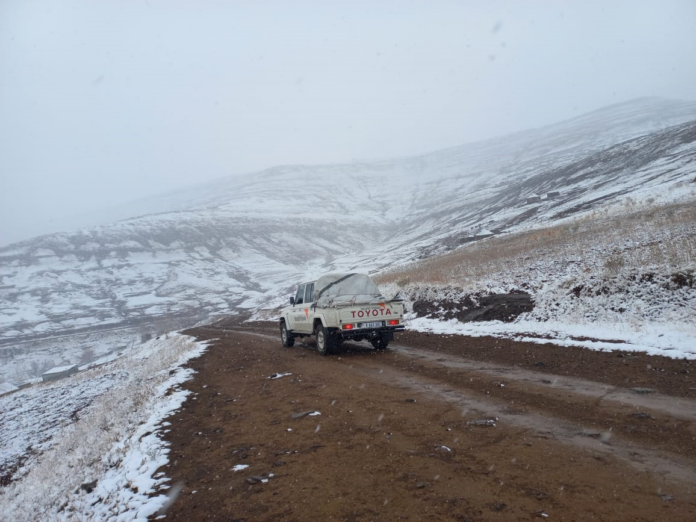Background and Context
Lesotho, a small, landlocked country in Southern Africa, is vulnerable to climate change-induced weather extremes, such as droughts, floods, and heavy snowfall. Although it is not prone to frequent natural disasters like earthquakes or hurricanes, climate change has resulted in erratic weather patterns that impact various sectors, especially education.
These disruptions often lead to school closures, hazardous conditions for students, and difficulties in maintaining regular educational activities. Climate-related disasters can damage infrastructure, making school buildings unsafe, and cause transportation problems, impacting students’ ability to attend classes. Additionally, these events can displace families, create economic strains, and lead to health risks, further complicating the educational landscape.
The Impact on Education
When disasters strike, children are among the most affected. In Lesotho, more than 50% of those impacted by such events are children, leading to significant disruptions in their education. School buildings may be damaged, transportation becomes challenging due to flooded roads or snow-covered paths, and families may be displaced, forcing children to miss school. Health risks, such as waterborne diseases and respiratory illnesses, can also lead to extended school absences.
Challenges Faced by Students and Schools
In rural areas, where resources are limited, schools face additional hardships. Many schools lack clean water, proper sanitation facilities, and safe buildings, posing significant risks to students’ health and safety. Economic constraints from disasters can further limit children’s access to education, as families struggle to afford school fees or supplies. Additionally, the psychological trauma resulting from these events can affect children’s ability to concentrate in school, requiring additional support from educators and mental health professionals.
World Vision’s Efforts to Build Resilient Education Systems
World Vision International Lesotho, with support from the European Union Humanitarian Aid, is implementing the “Consolidating and Strengthening Disaster Risk Reduction (CSDRR)” project. This initiative aims to enhance both national and community capacities for effective disaster preparedness and response, with a specific focus on safeguarding children’s education. Through comprehensive approaches, the project promotes anticipatory action and community-level resilience.
The project’s coordinator, Ms. ‘Mamokobo Lebeko, emphasized the importance of strengthening disaster response capabilities to protect children’s education. This involves training teachers on disaster risk reduction, developing School Disaster Preparedness Plans (SDPPs), and integrating Disaster Risk Reduction and Management (DRRM) into the school curriculum. These efforts aim to ensure that children continue their education even during emergencies.
Collaborative Approaches to Strengthening Disaster Response
World Vision collaborates with Lesotho’s Disaster Management Authority (DMA) and the Ministry of Education & Training to foster a coordinated response to disasters. By engaging in dialogues with key stakeholders, they aim to develop integrated strategies to address the lack of resources during emergencies. This collaborative effort underscores the need for nationwide coordination to support education during disasters.
Mr. Tseliso Ncheke, World Vision’s Grants & Acquisition Lead, highlighted the importance of pooling resources and sharing initiatives to strengthen Lesotho’s disaster response. He referenced lessons learned from the COVID-19 pandemic, emphasizing that if society does not address current challenges, the same issues that arose during the pandemic could resurface.
Conclusion: Building Resilient Education Systems in Lesotho
Addressing disaster risks and strengthening education systems in Lesotho requires a comprehensive approach involving multiple stakeholders. World Vision International Lesotho’s efforts to build resilience and improve disaster preparedness aim to ensure that children have access to education, even in the face of climate-related challenges.
To achieve these goals, a collaborative effort involving government institutions, multilateral agencies, educational institutions, civil society organizations, and the business community is essential. By pooling resources and implementing strategic interventions, Lesotho can create a more resilient education system that withstands climate-induced disruptions. These efforts will ensure that children can continue to learn, grow, and thrive, regardless of the challenges they face.
















 The African Research (AR) Index is a comprehensive scholarly directory and database focused explicitly on journal publishers that publish and disseminate African research.
The African Research (AR) Index is a comprehensive scholarly directory and database focused explicitly on journal publishers that publish and disseminate African research.

